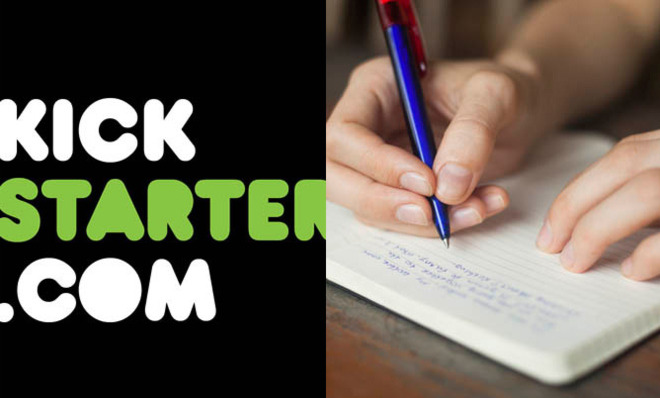The phrases that pay: How to write a successful Kickstarter
"Also receive two" is a money-making phrase. "Even a dollar," not so much.

A free daily email with the biggest news stories of the day – and the best features from TheWeek.com
You are now subscribed
Your newsletter sign-up was successful
There's more to Kickstarter success than having a creative idea. How you phrase your pitch may make a person more likely to donate to your project. And good news, donation seekers: Researchers may have determined the precise language that puts people in the giving mood.
Tanushree Mitra, a doctoral candidate in computer science at Georgia Institute of Technology in Atlanta, explained her research in a recent interview. Her team looked at about 45,000 projects on Kickstarter. They included everything from Ninja Baseball, a project that got significant press attention but couldn't reach its funding goal, to Pebble, which got more than three times what it asked for. They analyzed the way each pitch was written, and then noted how much money the project received above or below the goal.
They found that projects that used the words "also receive two," "mention your," "given the chance," "your continued," and "we can afford" were the most successful.
The Week
Escape your echo chamber. Get the facts behind the news, plus analysis from multiple perspectives.

Sign up for The Week's Free Newsletters
From our morning news briefing to a weekly Good News Newsletter, get the best of The Week delivered directly to your inbox.
From our morning news briefing to a weekly Good News Newsletter, get the best of The Week delivered directly to your inbox.
The people who described their projects with phrases like "not been able," "even a dollar," "later I," "a blank," and "hope to get" weren't as lucky.
"The main finding was that the language in which the Kickstarter is being used to pitch the project has a big factor in whether the project can be successfully funded or not," Mitra said.
So what are the secrets to succes?
1. Reciprocity
A free daily email with the biggest news stories of the day – and the best features from TheWeek.com
Projects that promised something in return for a donation tended to be the most appealing.
2. Scarcity
Making the project sound like it was in limited supply and that people needed to get one right away was one of the top criteria for funding.
3. Social proof
Successful Kickstarters emphasized that many other people had already donated to the project, which gave the appearance of proving that the idea was worthwhile.
4. Social identity
The project leaders who wrote their pitches with a specific target audience in mind instead of a pitch that appealed to the general public tended to rake in more cash.
5. Gratitude
Consistently thanking people for their support and engagement, especially by linking to and calling out specific donors and other funders, boosted the probability that the Kickstarter would be funded.
6. Authority
Successful project leaders pointed out why they were an expert in the field and listed their credentials, making their product seem far superior. They also listed factors that made their product better than anything in existence.
Mitra now hopes to conduct follow-up studies in which she'll talk to the donors directly to see if there were specific phrases they believed compelled them to donate.
The paper will be presented at the 17th ACM Conference on Computer Supported Cooperative Work and Social Computing, which will be held in Baltimore from Feb. 15-19.
Michelle Castillo is a freelance writer and editor and a pop culture junkie. Her work has appeared in TIME, the Los Angeles Times and CBS News.
-
 The Gallivant: style and charm steps from Camber Sands
The Gallivant: style and charm steps from Camber SandsThe Week Recommends Nestled behind the dunes, this luxury hotel is a great place to hunker down and get cosy
-
 The President’s Cake: ‘sweet tragedy’ about a little girl on a baking mission in Iraq
The President’s Cake: ‘sweet tragedy’ about a little girl on a baking mission in IraqThe Week Recommends Charming debut from Hasan Hadi is filled with ‘vivid characters’
-
 Kia EV4: a ‘terrifically comfy’ electric car
Kia EV4: a ‘terrifically comfy’ electric carThe Week Recommends The family-friendly vehicle has ‘plush seats’ and generous space